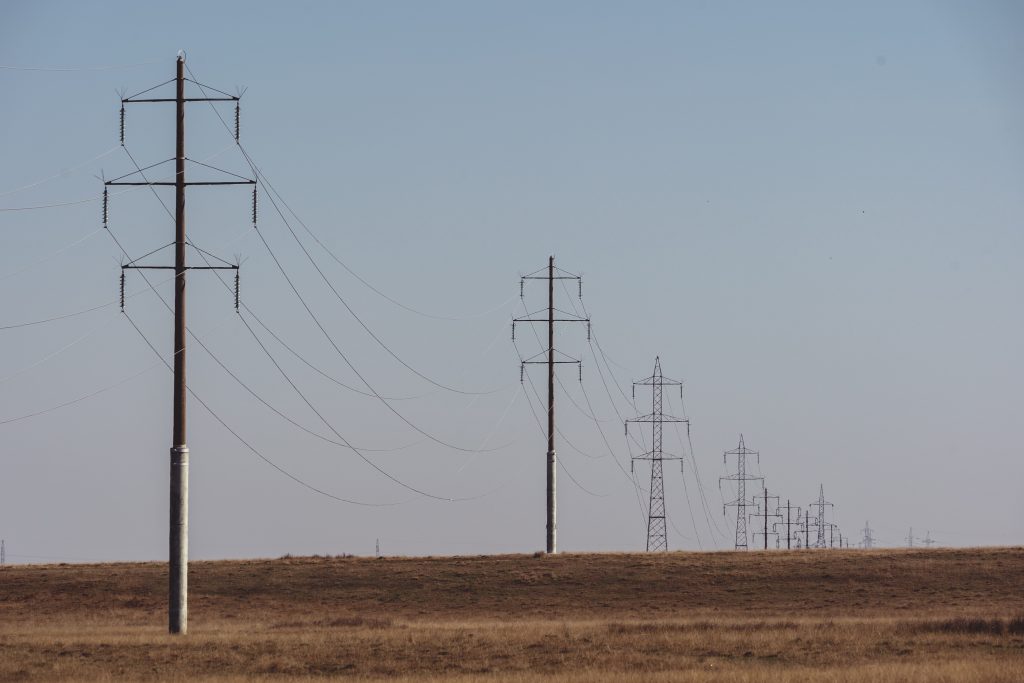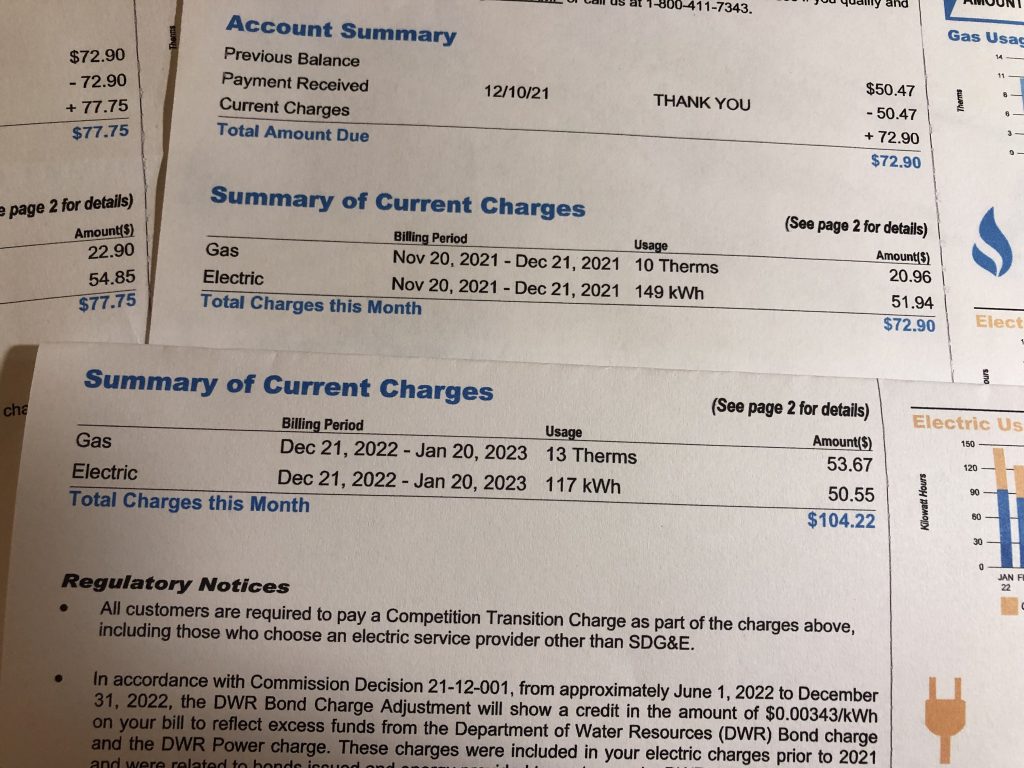
California will introduce a fixed, income-based fee on every resident’s electric bill (including those whose solar panels generate more electricity than they consume), but officials have not yet decided how much to charge.
The move will spread costs of maintaining the grid to all customers and reduce the cost of energy on the state’s poorest, supporters say. Critics argue it burdens the already-struggling middle class, disincentivizes people from saving energy, and punishes those who paid to install solar panels in good faith.
It is undecided yet exactly how the fees will work. The move was quietly included in a massive energy bill passed last year, and gives the California Public Utilities Commission (CPUC) until July 2024 to finalize a new flat rate for customers.
Electric bills include more than just the cost of power: They also include grid infrastructure and maintenance costs, wildfire mitigation costs, clean energy initiatives, and the costs of programs that assist low-income families with their utility bills. The legislation in Assembly Bill 205 calls for utility companies – such as the investor-owned San Diego Gas and Electric – to separate those costs from actual energy deliverance fees.
The result: An income-based fee assessed to bills before any power is delivered on site. Theoretically, this would reduce the cost of a kilowatt hour of electricity, and proponents say it will reduce the overall cost of most customers’ bills.
San Diego has the highest cost of electricity in the country at an average of $0.47 per kilowatt hour under SDGE’s dynamic pricing model. As a reference point, ocean-locked Hawaii carries the highest statewide electricity cost at $0.45 per kWh. (California’s statewide average is $0.25 per kWh.) In the United States, the average cost of electricity is $0.15 per kWh.
The CPUC requested proposals for new rate schedules by last week. On Friday, SDGE, Pacific Gas & Electric, and Southern California Edison, three large, investor-owned utilities (IOUs), submitted a joint proposal that would reduce electricity costs to $0.27 per kWh, and fixed fees would be assessed as follows:
- Households earning less than $28,000: $24 per month
- Households earning between $28,000 and $69,000: $34 per month
- Households earning between $69,000 and $180,000: $73 per month
- Households earning above $180,000: $128 per month
It is unclear who will determine the income tiers for utility customers, a complicated and expensive undertaking. The median household income in San Diego is $89,000, according to data from the U.S. Census Bureau.
SDGE profited more than $900 million last year, an increase of about $100 million from the previous year. Its parent company, Sempra Energy, profited almost $3 billion last year.
The utilities are not the only ones whose proposals are in the running, however. Other entities submitted proposals whose fixed charges dropped as low as $5 monthly for customers enrolled in programs like CARE, to as high as $145 for highest-earning households.
Like traditional utilities, the solar industry also stands to gain – or lose – under this legislation. The Social Energies Industries Association submitted a proposal to the CPUC outlining fixed charges ranging from around $7 per month to $13 per month, with the lowest fees reserved for those enrolled in bill assistance programs.
A chief criticism of the IOU rate model is that homeowners who invested thousands in solar to cut their electricity costs – and pump their excess electricity to the grid – will be slapped with large bills regardless. This would dissuade homeowners from investing in clean energy, critics say.
The CPUC will now begin the laborious process of debating its rate schedule, though it has more than a year to reach a decision – but the flat rate itself is inevitable. Its next public meeting will be held Thursday, April 27, at 11 am.





